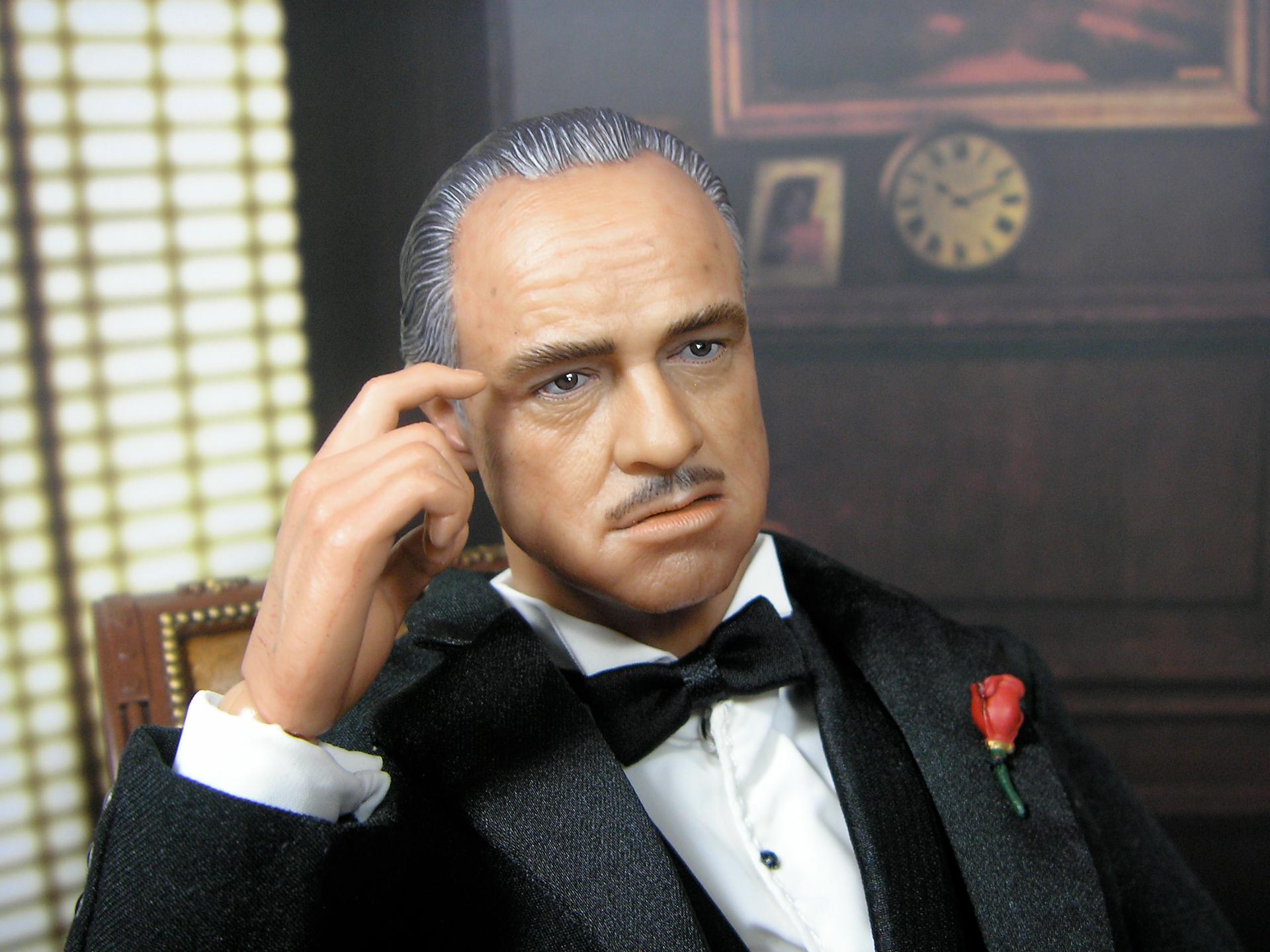What we can learn from pirates, gangsters and others in the ‘misfit’ economy
A scale figure of "The Godfather's" Vito Corleone by Hot Toys.
An app that will teach poor children to read! A genetically engineered crop that will end famines! It seems like there’s always a gaggle of startups aiming to change the world. After a while, they all start to sound the same.
Mostly.
Alexa Clay, co-author of “The Misfit Economy: Lessons in Creativity from Pirates, Hackers, Gangster, and Other Informal Entrepreneurs,” says that our view of who qualifies as an innovator is actually far too narrow.
“What about the people that we don’t talk about?," she wonders. "What about the former drug dealers or gangsters who were born into poverty, but have incredible entrepreneurial skills and aren’t part of mainstream startup, tech-hub type culture?”
Beyond the sparkly, alluring world of Silicon Valley, there is a whole class of creative minds in places that are a little more subterranean than you'd expect.
Gangs, for example. Many gangs formed during times of mass immigration and rising xenophobia, making mainstream opportunities hard to come by. How did immigrants respond? By banning together and forming exclusive groups. Clay says that many Italian and Irish gangs originally formed in part to provide immigrants with economic opportunity they wouldn’t have otherwise had.
Sometimes, creative misfits take a more solitary route. In India, a man reverse engineered drugs to make then more accessible. Clay says that he essentially took the patents from pharmaceutical companies, but “made them much more affordable and accessible for the poor.”
“In many ways, he was breaking the law – but sort of in this Robin Hood fashion by delivering a public good.”
Clay argues that the ideas of these underground trailblazers can flood into mainstream culture. “Regularly, insights and subcultures really come to transform mainstream values in society and institutions,” she explains.
According to Clay, many credit McDonald’s for popularizing the idea of the franchise, but actually, the mafia had been using the tool for years before. Pirates, similarly, were pioneers in democracy. They created constitutions and democratic processes 50 years before the Declaration of Independence was signed.
Another example of fringe communities having major impact is the use of the world hack. It’s everywhere – the hackathon, the IKEA hack — but it originated far from the mainstream.
And Clay believes that many of us may qualify as misfits – if we try to disrupt organizations from the inside. “You have so many people that are more camouflaged within systems that are trying to create change that really never get credit, and that’s part of what success looks like.”
A version of this story first aired as an interview on PRI's Innovation Hub.
Every day, reporters and producers at The World are hard at work bringing you human-centered news from across the globe. But we can’t do it without you. We need your support to ensure we can continue this work for another year.
Make a gift today, and you’ll help us unlock a matching gift of $67,000!
